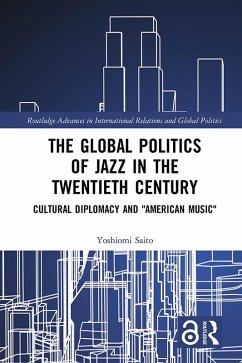
Virtuosi Abroad (eBook, PDF)
Soviet Music and Imperial Competition during the Early Cold War, 1945-1958

PAYBACK Punkte
0 °P sammeln!
In the 1940s and 1950s, Soviet musicians and ensembles were acclaimed across the globe. They toured the world, wowing critics and audiences, projecting an image of the USSR as a sophisticated promoter of cultural and artistic excellence. In Virtuosi Abroad, Kiril Tomoff focuses on music and the Soviet Union's star musicians to explore the dynamics of the cultural Cold War. He views the competition in the cultural sphere as part of the ongoing U.S. and Soviet efforts to integrate the rest of the world into their respective imperial projects.Tomoff argues that the spectacular Soviet successes in...
In the 1940s and 1950s, Soviet musicians and ensembles were acclaimed across the globe. They toured the world, wowing critics and audiences, projecting an image of the USSR as a sophisticated promoter of cultural and artistic excellence. In Virtuosi Abroad, Kiril Tomoff focuses on music and the Soviet Union's star musicians to explore the dynamics of the cultural Cold War. He views the competition in the cultural sphere as part of the ongoing U.S. and Soviet efforts to integrate the rest of the world into their respective imperial projects.Tomoff argues that the spectacular Soviet successes in the system of international music competitions, taken together with the rapturous receptions accorded touring musicians, helped to persuade the Soviet leadership of the superiority of their system. This, combined with the historical triumphalism central to the Marxist-Leninist worldview, led to confidence that the USSR would be the inevitable winner in the global competition with the United States. Successes masked the fact that the very conditions that made them possible depended on a quiet process by which the USSR began to participate in an international legal and economic system dominated by the United States. Once the Soviet leadership transposed its talk of system superiority to the economic sphere, focusing in particular on consumer goods and popular culture, it had entered a competition that it could not win.
Dieser Download kann aus rechtlichen Gründen nur mit Rechnungsadresse in A, B, BG, CY, CZ, D, DK, EW, E, FIN, F, GR, HR, H, IRL, I, LT, L, LR, M, NL, PL, P, R, S, SLO, SK ausgeliefert werden.













